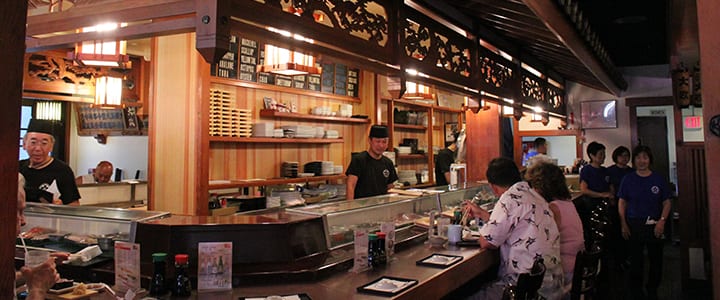Looking for more ways to practice speaking Japanese? Whether you’re an intermediate Japanese student or you just started taking Japanese lessons, these tips from Brighton, MA teacher Kaoru N. will boost your confidence in your Japanese conversation skills…
Real-life language skills are often very different from the skills you learn from a textbook or in a classroom. Think about your own language, you didn’t just learn in class; you engaged in conversations and used your language in real-life situations.
While grammar, vocabulary, and language exercises are important in order to gain proficiency in a new language, you have to put in some additional time and effort to develop your conversational Japanese.
Here are some great ways to practice speaking Japanese.
1. Language Schools and ESL Programs
English is a universal language, so a lot of people come to the United States from all over the world to learn English. No matter where you live, there should be at least one local language school in your area. Most schools also have English as a Second Language (ESL) programs for international students. As a result, there are plenty of Japanese people who would love to speak with you.
When you connect with international and ESL students, you have the unique opportunity to help each other. You can help them improve their English skills, and they can help you with your Japanese conversation skills.
2. Japanese Culture Classes
(taught by a native Japanese speaker)
This may be difficult depending on where you live, but try to find a Japanese culture class. There are classes on Ikebana (flower arrangement), Origami, Calligraphy, Taiko drumming, martial arts, and more.
Find a class you enjoy; you will not only learn a new skill, but you will also become more familiar with the Japanese language.
Studying Japanese culture will enhance your overall learning experience, and you may even meet some new friends!
3. Work at a Japanese Restaurant
You will meet a lot of Japanese colleagues if you work at a Japanese restaurant, so you can test your knowledge by speaking with them. You can also hear real conversations between Japanese people.
Working in a Japanese restaurant gives you knowledge about specific language related to the menu and ingredients. If you work as a server, you will learn many new terms, and you will have the opportunity to help Japanese customers.
If you work in a kitchen, you can learn some Japanese food recipes.
There are a lot of great reasons to work in a Japanese restaurant, but there are a few things you should keep in mind. Japanese restaurants aren’t always managed by Japanese people, and unfortunately, some restaurants don’t serve traditional Japanese foods.
To ensure you have a worthwhile experience, make sure you do your research on the Japanese restaurants in your area.
4. Stay in Japan
Traveling and/or staying in Japan isn’t feasible for everyone, but it’s the best way to really master the Japanese language.
This method requires many sacrifices, including time and money, but if you’re willing to plan ahead and invest in your education, you can improve your Japanese-language skills and have an unforgettable experience.
If you want to travel to Japan to study the language, there are several options for you to explore including Japanese language schools, immersion programs, and travel groups.
There are many different ways to improve your Japanese skills, the important thing is finding the method that works best for you.
How do you practice speaking Japanese? Let us know in the comments below!
 Post Author: Kaoru N.
Post Author: Kaoru N.Kaoru teaches Japanese, guitar, and classical guitar lessons in Brighton, MA. Originally from Tokyo, he graduated from Berklee College of Music with a dual major, and is available for in-home, in-studio, and online lessons. Learn more about Kaoru here!
Photo by Prayitno
Maile Proctor


